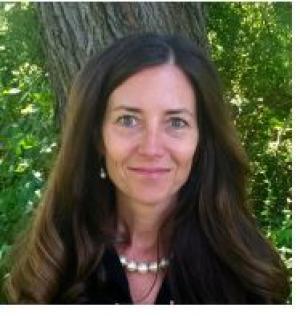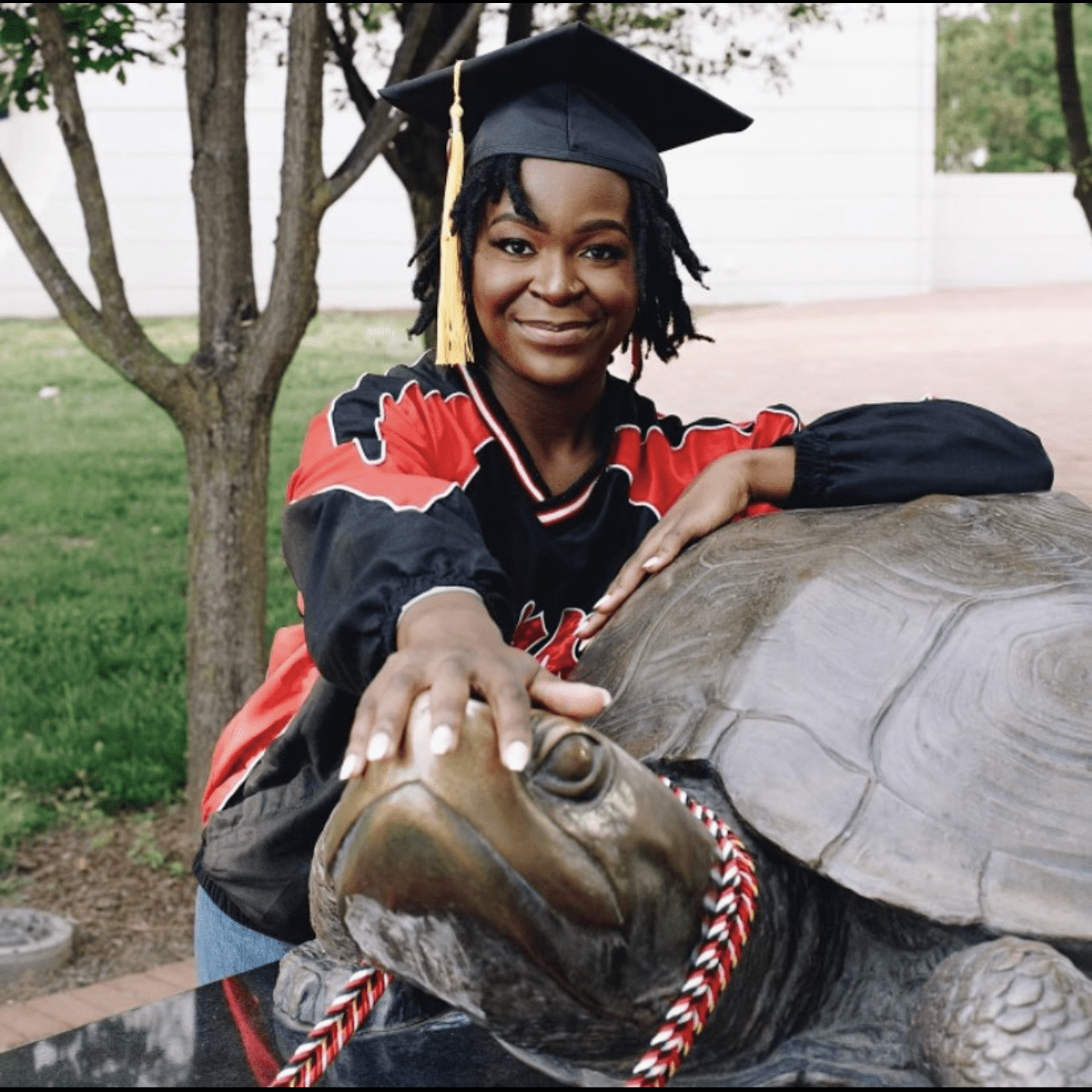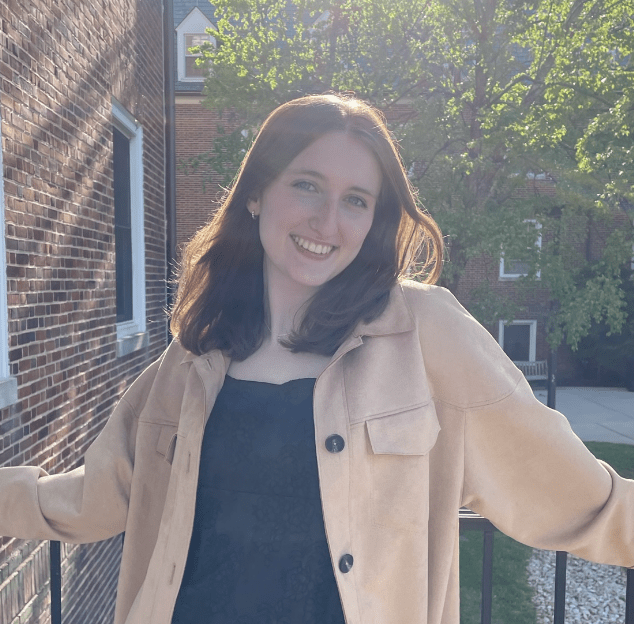Civic Engagement for Social Good
Inspiring community collaboration and meaningful change
Introduction
The world critically needs changemakers committed to understanding social issues and collaborating alongside their communities to foster meaningful change. In Civic Engagement for Social Good (CESG), previously known as CIVICUS, students work with organizations addressing a range of societal challenges, including poverty, food insecurity, housing insecurity, child welfare, education, political activism, animal rights, and the environment. Students explore:
- Issues impacting local communities
- Organizations that are addressing pressing social issues
- Ways to engage in hands-on work in civic engagement
- Strategies for deliberative dialogue in a multicultural world
- Methods to leverage their strengths to make sustainable change
CESG coursework and community engagement activities operate in tandem, creating a synergy that enhances the overall student experience. Coursework provides an opportunity for students to explore the root causes of social needs and strategies for addressing social concerns that they see during their work in the community, while service projects and co-curricular activities create an environment for students to implement what they learn in the classroom.
As an interdisciplinary program, CESG students represent a wide range of academic interests and majors. Civic Engagement for Social Good encourages students to ground their work in their passions, academic majors, and professional interests.
Through their shared passion for social good and engagement in co-curricular activities, CESG students form a close cohort who develop strong friendships and support each other throughout their time at UMD.
Colloquium and Lecture Topics
- The complexities and the structures that cause social issues
- Concepts related to the theories and practices of civic engagement
- Models for working towards positive social change
- Ways to engage in difficult conversations with empathy around differences of perspective, beliefs, and identities
[This program] has made me a kinder, more compassionate, more informed person. [It] gave me the opportunity to get my hands dirty, to engage in the community in ways I never thought I could. [It] has taught me that it takes a village but also that I can make tremendous change myself..providing me with more opportunities for learning and character-building than I would've gotten in any other program or club.
Other Learning Opportunities
Students are actively engaged in UMD, College Park and surrounding areas, and Washington, DC annually completing over 1,000 hours of volunteer work. Students can choose from over 100 projects per year with a wide array of partner organizations.
Students:
- Participate in civic engagement projects. Recently, students have acted as mentors for local elementary students, planted trees to increase the canopy in Washington, DC, served meals from a mobile soup kitchen, handled dogs at a humane rescue adoption event, canvassed on behalf of political candidates, and captioned videos to ensure accessibility for a wider community.
- Take trips to Washington DC and the surrounding area where they participate in scavenger hunts, visit memorials, monuments, and museums, and attend baseball games, cultural heritage events, and the performing arts.
- Meet guest speakers, including politicians, staff members from local non-profit organizations, and local community leaders and activists
- Participate in community-building activities, such as challenge courses, trivia nights, bingo, BBQs, and study breaks
CESG staff provide the planning, logistical support, and transportation for most activities. All second-year students also participate in a capstone experience for academic credit. The capstone can include an internship, extensive work with a non-profit, or affiliated experiential learning courses. Students in the past have held internships in local and national politics, non-profits, high-profile media outlets, medical facilities, research labs, mentoring organizations, and peer dialogue training. The capstone gives students authentic experiences and skills that help support their academic work, career goals, and future community engagement efforts.
Curriculum Overview
Over the two-year program (four semesters), students complete 12-credit hours that count toward their CESG Scholars citation. The following table represents a typical two-year curriculum. Details about courses and requirements can be found on the CESG Citation Checklist
| SEMESTER | COURSE | CREDITS |
|---|---|---|
| Semester 1 | CPCV 100: Colloquium I | 1 credit |
| CPCV 225: Intro to Civic Engagement for Social Good | 3 credits | |
| Semester 2 | CPCV 101: Colloquium II | 1 credit |
| Semester 3 | CHSE 328C: Intergroup Dialogue (DVCC) | 1 credit |
| Semester 4 | CPCV 230: Internship; or CPCV 240: Service-Learning; or CPCV 250: Research; or |
3 credits 3 credits 3 credits |
| Semester 1, 2, 3, or 4 | Supporting Course (var. Gen Ed) | 3 credits |
Sponsoring College
Office Address
1103 Centerville Hall
Office Email
Faculty


Deborah Omotoso

News and Notes, Etc.
Civic Engagement for Social Good News
STS Director Receives Dean's Award for Outstanding Performance
David Tomblin, director for the Science, Technology and Society Scholars program and the new Science, Technology, Ethics and Policy minor, has received the Dean’s Outstanding Performance for Professional Track Faculty by the A. James Clark School of Engineering. The award, instituted in 2020, recognizes exceptionally influential accomplishments in one, or both, the areas of research and teaching.
Scholars Alum Recognized by National Coalition for Work on Campus Voting
Alexandra Marquez, a Media, Self and Society Scholars alum and a 2021 graduate of the University of Maryland, was recently named Standout Undergraduate Student by the All in Democracy Challenge, a coalition of 850 higher education institutions across the country. The All in Democracy Challenge empowers colleges and universities to achieve excellence in nonpartisan student democratic engagement.
New Minor Expands STS Concepts Beyond Scholars
The Science, Technology and Society (STS) Scholars program has long pushed students to consider the ethical, social and political implications of science, research and technology. It’s the kind of thinking that isn’t readily incorporated into most STEM curricula, despite the high likelihood that these students will one day design or introduce innovations that could significantly impact society. Thanks to a new minor, however, more University of Maryland students will soon be exposed to STS teachings.
In Memoriam: J. Lee Hellman, Founding Director of Life Sciences Scholars
College Park Scholars is mourning the passing last week of Dr. John Lee Hellman, the founding director of the Life Sciences Scholars program—one of the four original programs in College Park Scholars. He served as director of Life Sciences from its launch in 1994 until 2009. Hellman was a lifelong Terp, having earned his bachelor’s and master’s degrees, as well as his doctorate, from the University of Maryland, College Park (UMD). After earning his Ph.D. in 1975, he went on to serve as a professor in the Department of Entomology in the then–College of Life Sciences. (Entomology is now a joint department of the College of Agriculture and Natural Resources and the College of Computer, Mathematical, & Natural Sciences.)
In-Person Service Day Relaunches With Enthusiasm
Kids bent over boxes of school supplies. Tubs of tomatoes, picked fresh off the vine. College students clad in waders, waist-deep in pond water. These were just a few of the scenes witnessed during College Park Scholars’ annual Service Day, which took place on Friday, Aug. 27, this year.
Longtime International Studies Director Concludes Scholars Tenure
A renowned scholar of political psychology, political violence and genocide, James Glass oversaw the International Studies Scholars program for 15 years. Dr. James Glass, director of the International Studies (IS) Scholars program for the past 15 years, has stepped down from his post, effective June 30. He was the longest-serving director in IS history.


